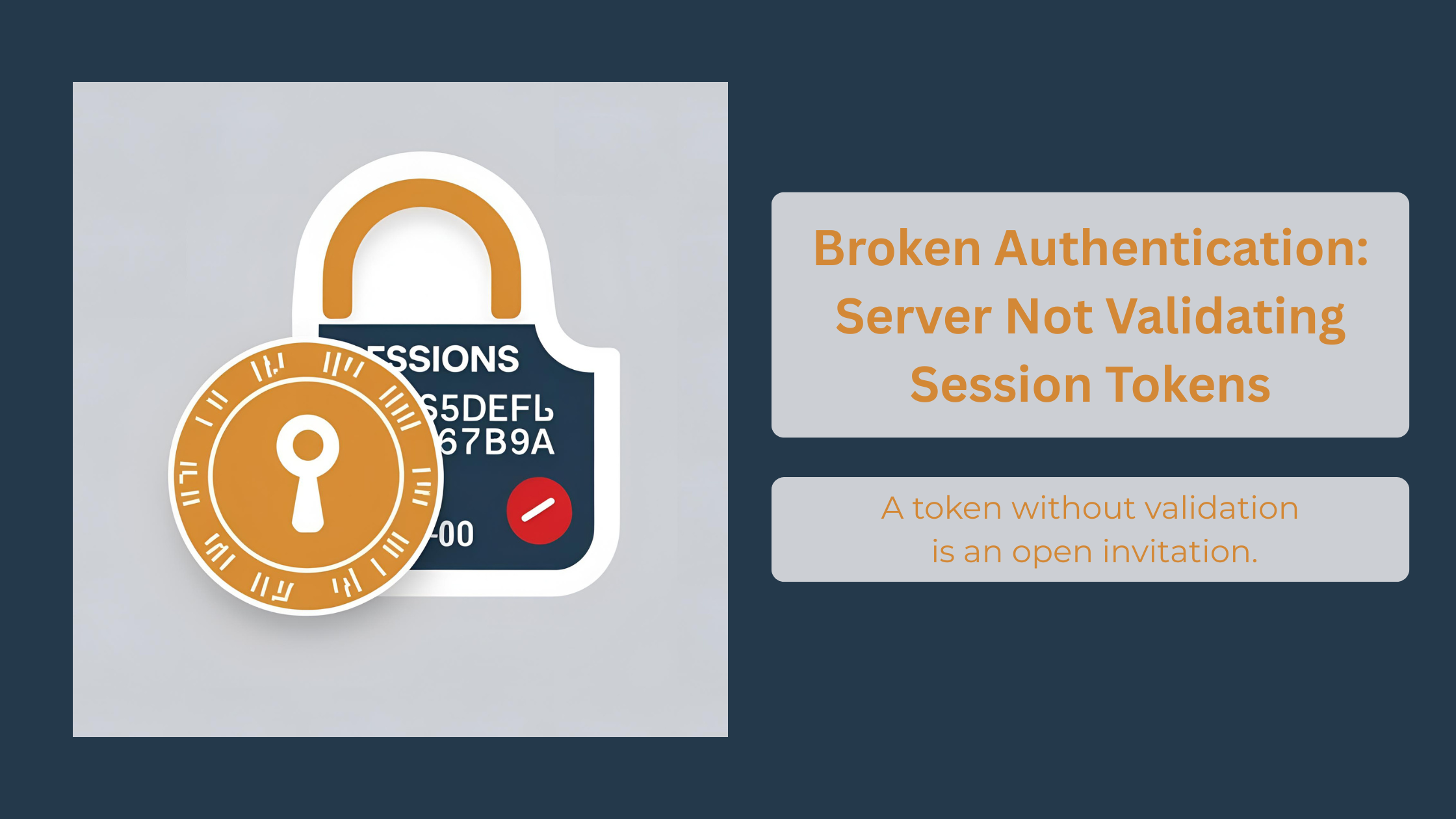Authenticity of the session token is not being checked and validated at the server-side
What is the Vulnerability?
In a secure web application, once a user logs in, the server usually issues a session token. This token is often stored in a cookie, localStorage, or passed as a bearer token. It is used to verify the user’s identity on future requests.
This vulnerability happens when the server fails to check if the session token is legitimate. This means:
- The token may be accepted even if it has been altered, generated by the user, or expired.
- The application automatically trusts any token given by the client, without checking where it came from or if it is valid.
Real-world Example: If an attacker creates or changes a session token and the server does not verify it against a trusted session store or signature, the attacker can bypass authentication and gain unauthorized access. This is a typical case of Broken Authentication and is a serious issue according to the OWASP Top 10.

Impact of this Vulnerability
- Unauthorized Access: Attackers can forge session tokens and impersonate valid users.
- Session Hijacking: token validation, tokens leaked via XSS or logs can be reused indefinitely.
- Escalation: Attackers can generate tokens with elevated roles (e.g., admin) and gain access to restricted resources.
- Compliance Breach: Violates standard security policies required under GDPR, HIPAA, and PCI-DSS.
Solution to Fix the Vulnerability
To fix this issue effectively, developers need to use strict session token validation methods:
-
Always Validate Tokens Server-Side
On each request, check the session token against the server-side session store for opaque tokens. For JWTs or signed tokens, verify:- Signature
- Expiry (exp)
- Issuer (iss)
- Audience (aud)
-
Use Secure Token Standards
Use signed JWT tokens with strong algorithms and never accept unsigned tokens. Store sensitive sessions in HTTP-only, Secure cookies with the right flags, such as SameSite=Strict. -
Token Expiry & Rotation
Use short-lived tokens and refresh token methods. Invalidate sessions after logout or after a period of inactivity. -
Avoid Common Pitfalls
Do not trust tokens from the client without validation. Avoid custom or outdated token methods that do not have cryptographic protection. -
Vulnerable Libraries or Practices
Do not use older versions of token libraries like:- jsonwebtoken (Node.js) before v8.5.1
- PyJWT (Python) before v2.0
- Custom token logic without cryptographic signatures

